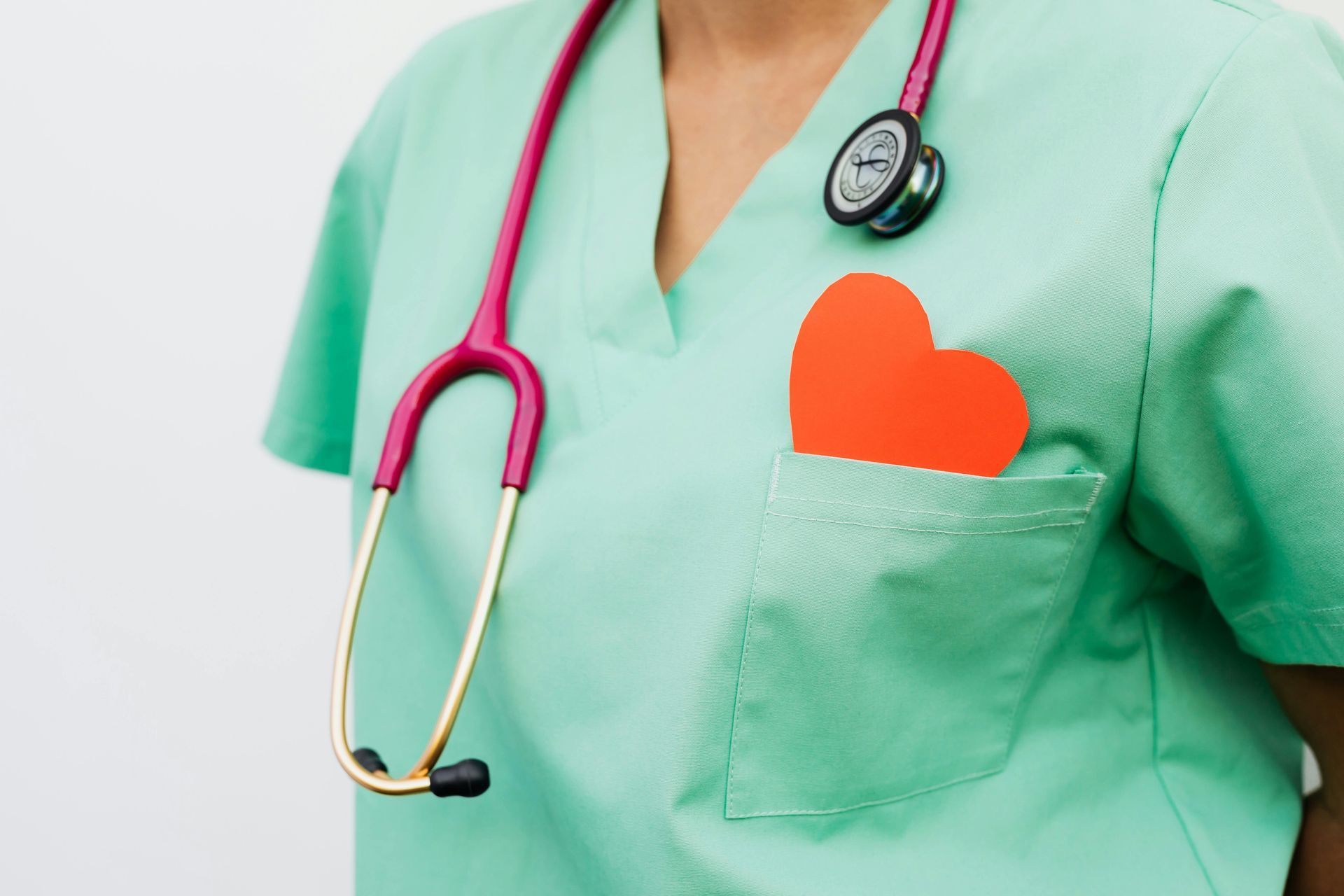Honoring the Women Who Shaped IVF: Pioneers, Patients, and Advocates
Caperton Fertility • March 7, 2025
As we reflect on the incredible progress of reproductive medicine, it's essential to recognize the remarkable women whose contributions have shaped the field of in vitro fertilization (IVF) as we know it today. From groundbreaking scientists to the very first IVF patients, these women have not only advanced fertility care but have also brought hope to millions of families around the world.
At Caperton Fertility Institute, we’re proud to stand on the shoulders of these trailblazers, whose work continues to inspire the future of fertility treatment.
🌟 Pioneering Scientists & Physicians
Dr. Jean Purdy (1945–1985)
Often overlooked in IVF history, Dr. Jean Purdy was a nurse and embryologist who played a vital role in the world's first successful IVF procedure. As part of the team that brought Louise Brown, the first IVF baby, into the world in 1978, Dr. Purdy managed the lab and helped develop the embryo culture techniques that made the procedure possible. Today, she is finally being recognized as a true pioneer in embryology and reproductive medicine.
Dr. Georgianna Seegar Jones (1912–2005)
As one of the first reproductive endocrinologists in the United States, Dr. Georgianna Seegar Jones co-founded the country’s first fertility clinic in 1939 alongside her husband, Dr. John Rock. Her groundbreaking work in early fertility treatments laid the foundation for the future of IVF, offering options for patients who had previously been left without hope.
Dr. Kay Elder
A direct collaborator with IVF pioneer Robert Edwards, Dr. Kay Elder has been instrumental in training and educating generations of fertility specialists worldwide. Her contributions to research and her dedication to knowledge-sharing have elevated standards in reproductive medicine, ensuring that patients today benefit from decades of refined practices and innovation.
Dr. Ana Cobo
A leader in fertility preservation, Dr. Ana Cobo revolutionized the process of oocyte (egg) vitrification. Her work has been especially life-changing for patients facing cancer treatments and women seeking to preserve their fertility for future family-building. Thanks to her research and advancements, egg freezing has become a safe, reliable, and widely accessible option for patients around the globe.
🌟 First IVF Baby
Louise Brown (b. 1978)
The birth of Louise Brown marked a new era in reproductive medicine. As the world's first IVF baby, her arrival offered hope to countless individuals and couples experiencing infertility. Louise continues to be a symbol of what’s possible through science, perseverance, and the dedication of fertility pioneers.
🌟 Advocates & Changemakers
Elizabeth Carr (b. 1981)
As the first baby born via IVF in the United States, Elizabeth Carr has grown into a passionate advocate for reproductive rights and infertility awareness. By sharing her story, she works to break the stigma around fertility treatments and bring attention to the emotional and physical journeys of those seeking care.
Dr. Serena Chen
Dr. Serena Chen is not only a highly respected fertility specialist but also a leading voice in reproductive health advocacy. Through her public platforms, Dr. Chen champions equitable access to fertility care and works to raise awareness about the barriers many patients face on their paths to parenthood.
Dr. Natalie Crawford
One of today’s most influential educators in fertility medicine, Dr. Natalie Crawford uses social media to empower women with knowledge about their reproductive health. Her approachable and informative content has helped destigmatize infertility and created a supportive space for people navigating complex fertility journeys.
Honoring the Women Who Inspire Us
The journey of IVF, from a groundbreaking experimental procedure to a widely used and highly successful treatment, would not have been possible without the contributions of these extraordinary women. Their dedication to science, advocacy, and education continues to transform lives, and their legacies are felt every day at clinics like Caperton Fertility Institute.
As we celebrate these pioneers, patients, and changemakers, we are reminded of the power of innovation, compassion, and resilience in the field of fertility care. We are grateful for their work—and we look forward to carrying their mission forward by helping you build the family of your dreams.

When people talk about IVF, the focus is often on the medical side—medications, timelines, lab work, and success rates. What’s discussed far less often is the emotional experience , which can be just as intense as the physical process. If you’re feeling overwhelmed, conflicted, hopeful one moment and discouraged the next, you’re not doing IVF “wrong.” These emotional shifts are common—and normal. Here’s what many patients experience emotionally during IVF, even if no one warned them ahead of time. The Emotional Whiplash of Hope and Fear IVF often brings a unique combination of optimism and anxiety. Starting treatment can feel empowering—finally, something is happening. At the same time, that hope may feel fragile, especially if you’ve experienced infertility, loss, or disappointment before. Many patients describe: Feeling excited and terrified at the same time Guarding their optimism to avoid heartbreak Struggling to plan for the future because outcomes feel uncertain This emotional push and pull can be exhausting, and it’s one of the most common aspects of IVF that people don’t expect. Loss of Control (and Why It’s So Hard) IVF places much of the process outside your control—medication schedules, hormone levels, test results, and timing are often dictated by your body and the clinic. Even highly organized, resilient people may feel: Frustrated by last-minute changes Anxious while waiting for updates or phone calls Disconnected from their own body Feeling out of control can be one of the most emotionally challenging parts of IVF, especially for patients used to being proactive problem-solvers. The Two-Week Wait: An Emotional Rollercoaster The time between embryo transfer and pregnancy testing—often called the two-week wait—is widely considered the most emotionally difficult phase of IVF. During this time, patients may experience: Hyper-awareness of every physical sensation Replaying every step of the cycle in their mind Mood swings between confidence and despair Fear of testing too early—or testing at all This waiting period can feel isolating and all-consuming, even when everything medically has gone well. Unexpected Grief (Even During Treatment) IVF can bring up grief in unexpected ways—not just if a cycle fails, but throughout the process. You might grieve: The loss of a “normal” conception experience The version of parenthood you imagined Feeling carefree about pregnancy announcements or baby showers Even successful cycles don’t erase this grief. Many patients feel guilty for mourning while still feeling hopeful—but both emotions can exist at the same time. Relationship Strain and Emotional Distance IVF can impact relationships in ways couples don’t anticipate. Partners may cope differently—one may want to talk constantly, while the other withdraws. Common experiences include: Feeling emotionally out of sync with your partner Pressure to stay “strong” for each other Misunderstandings fueled by stress and fatigue Open communication and compassion—for yourself and your partner—are essential during treatment. You Are Not Weak for Feeling This Way One of the hardest emotional burdens of IVF is the belief that you should be handling it better. Many patients silently wonder why they feel so overwhelmed. The truth is: IVF is emotionally demanding . Feeling anxious, sad, angry, numb, or hopeful—sometimes all in the same day—does not mean you’re failing. It means you’re human. Supporting Your Emotional Well-Being During IVF While you can’t eliminate the emotional challenges of IVF, support can make a meaningful difference. Many patients benefit from: Counseling or fertility-focused therapy Support groups or trusted friends Mindfulness, journaling, or gentle movement Setting boundaries around social media and conversations Most importantly, give yourself permission to feel what you feel—without judgment. You Don’t Have to Carry This Alone IVF is more than a medical treatment; it’s an emotional journey that deserves understanding and compassion. If you’re struggling emotionally during IVF, know that you are not alone—and support is available. Your feelings are valid. Your experience matters. And taking care of your emotional health is just as important as every injection, appointment, and lab result along the way.

February is best known for hearts—whether it’s Valentine’s Day cards or American Heart Month. But beyond the decorations and candy, February is an important reminder to talk about heart health , and for individuals and couples trying to conceive, that conversation matters more than many people realize. Your heart and reproductive system are deeply connected. Taking care of your cardiovascular health can play a meaningful role in fertility, pregnancy outcomes, and even IVF success. How Heart Health Impacts Fertility The cardiovascular system is responsible for delivering oxygen and nutrients throughout the body—including to the reproductive organs. When heart health is compromised, blood flow can be affected, which may influence hormone balance, egg and sperm quality, and overall reproductive function. Conditions such as: High blood pressure Diabetes Obesity Elevated cholesterol can all impact fertility in both women and men. These conditions may also increase the risk of pregnancy complications, making heart health important not just for conception, but for a healthy pregnancy as well. Heart Health and Female Fertility In women, cardiovascular health is closely tied to hormonal regulation and ovulation. Poor circulation and chronic inflammation can interfere with: Regular ovulation Endometrial lining development Egg quality Additionally, conditions like polycystic ovary syndrome (PCOS) are often associated with insulin resistance and cardiovascular risk factors, highlighting the overlap between heart health and reproductive health. Heart Health and Male Fertility Heart health matters just as much for male fertility. Research has shown that men with cardiovascular risk factors may experience: Lower sperm count Reduced sperm motility Increased DNA fragmentation Lifestyle habits that support heart health—such as regular exercise, balanced nutrition, and avoiding tobacco—are often the same habits that support healthy sperm production. IVF, Pregnancy, and Cardiovascular Wellness For patients undergoing IVF, optimizing overall health before treatment can improve outcomes and reduce risks. A healthy cardiovascular system supports: Better response to fertility medications Improved uterine blood flow Lower risk of pregnancy-related complications such as preeclampsia or gestational hypertension That’s why fertility specialists often emphasize wellness and lifestyle optimization as part of fertility care. Simple Heart-Healthy Habits That Support Fertility The good news? You don’t need perfection—small, consistent changes can make a difference. Some heart-healthy habits that also support fertility include: Engaging in moderate physical activity most days of the week Eating a balanced diet rich in fruits, vegetables, lean proteins, and healthy fats Managing stress through mindfulness, therapy, or relaxation techniques Getting adequate sleep Avoiding smoking and limiting alcohol intake These steps benefit not only your heart, but your reproductive health as well. February: A Month to Focus on the Whole You Fertility care isn’t just about lab results or treatment cycles—it’s about supporting the whole person. February is the perfect time to reflect on how heart health fits into your fertility journey and to remember that caring for yourself now can have long-term benefits for your future family. If you’re trying to conceive, thinking about IVF, or simply have questions about how your overall health may impact fertility, a fertility specialist can help guide you with personalized care and evidence-based recommendations. Your heart—and your future—deserve that care. 💙

